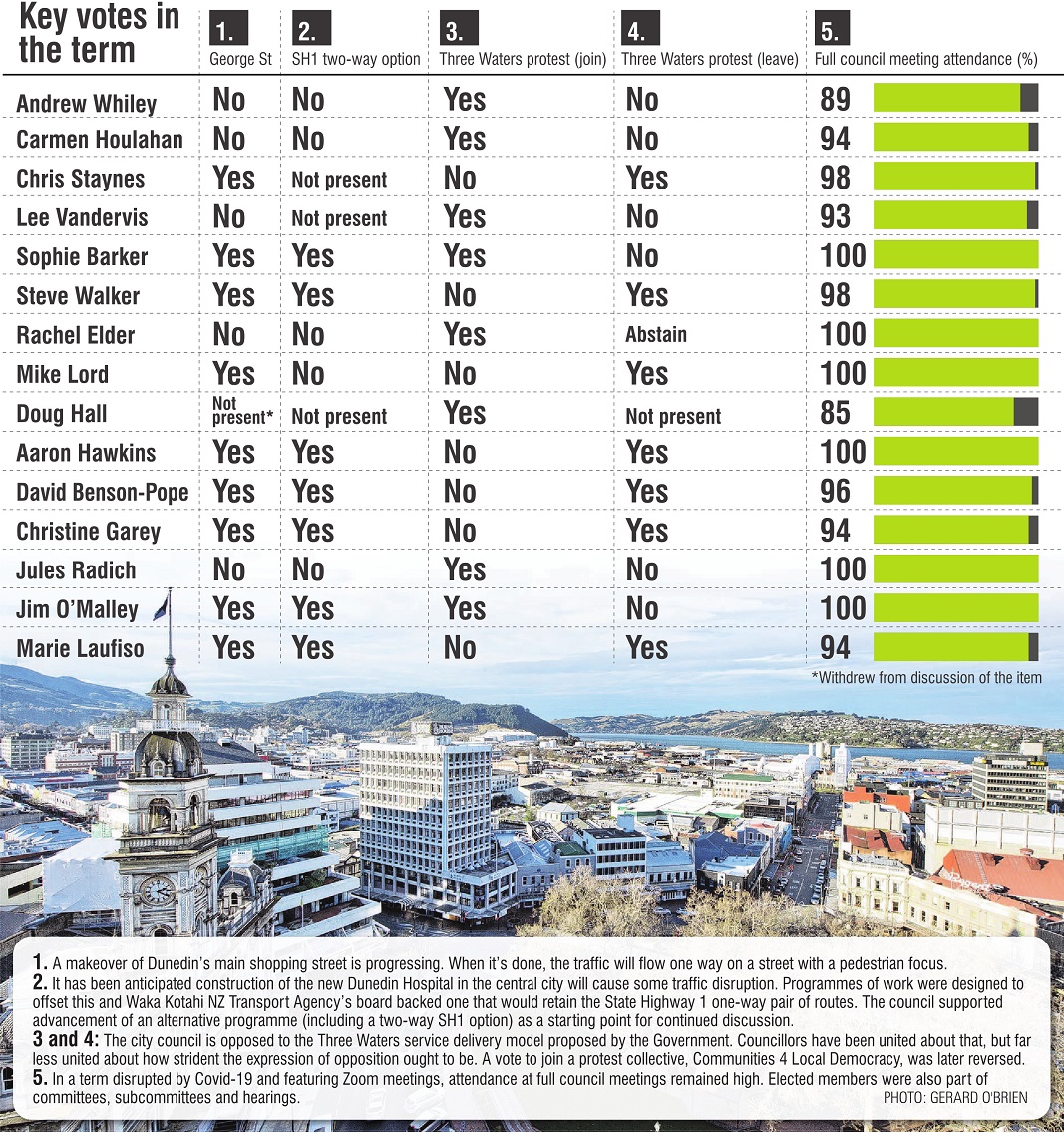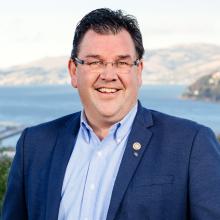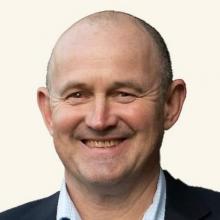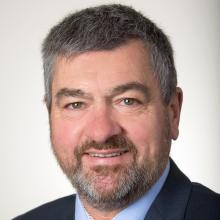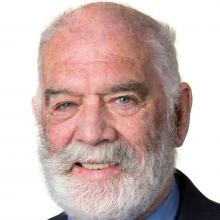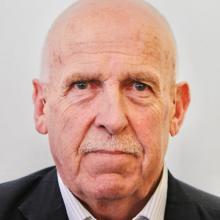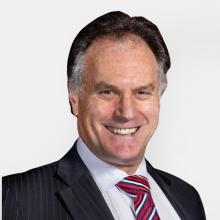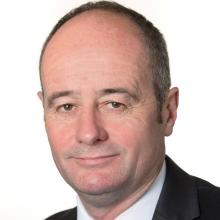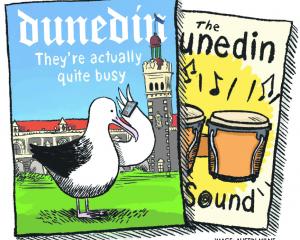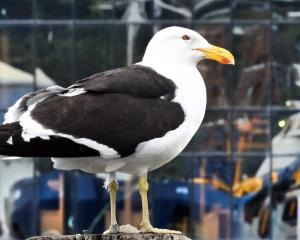The Dunedin City Council will have at least three changes to its elected line-up next month. Voters may well want more. Grant Miller has regularly attended council meetings and has had contact with various councillors. He gives his personal assessment of how they have fared this term.
The Dunedin City Council’s elected members can have quite some influence in shaping the city.
They are tasked with expressing ideas, setting strategic direction, grappling with complex issues and approving budgets. Their role is public and their task is often thankless.
What facilities does the city need? What should rubbish and recycling services be like? How might climate resilience be enhanced? What should be the mindset around council debt?
As a group, the council is hardworking. A lot of reading is required and councillors engage with much of the detail provided to them in reports.
They usually bring critical thinking skills with them to the task, but several are minded to pick out the positives and it is a small step from there to suboptimal governance.
It was clear that council staff learned much from last year’s lead-contamination scare affecting water supplies. It was less clear that councillors did.
Relentless thankfulness for the work of staff is a hallmark of the organisation and this culture is not without risk.
Despite some complacency, a lack of calamitous errors from experienced councillors prevented their scores sliding from middling.
New councillors were among the best performers and all — Carmen Houlahan, Steve Walker, Sophie Barker and Jules Radich — threw themselves into their work enthusiastically.
The most difficult comparison was between councillors inclined to tread carefully, but who are never going to climb mountains, and those who bound along, but get into scrapes.
Scores, out of 10, reflect my perception of the effectiveness of elected members and they rely to a large extent on what is apparent from public meetings, and a little on direct reporter-councillor interaction.
I have tended not to penalise councillors for perceived shortcomings in conduct.
grant.miller@odt.co.nz
Andrew Whiley 6
A pragmatist who sometimes finds himself in an awkward spot. His rationale is not always easy to follow or there is an element of dancing on the head of a pin. However, his stature within the council appears to have grown through the term and he seems to be an influential lieutenant on the Team Dunedin ticket. He could be among the leading candidates for the deputy mayoralty next term, if Aaron Hawkins loses the mayoralty. Cr Whiley chaired bylaw hearings in the past term. That placed him in the uncomfortable position of needing to defend lowered speed limits on the Otago Peninsula. An intriguing speech about problem gambling is an example of him getting pernickety. Cr Whiley has been an advocate for infrastructure spending and was among the council’s more prominent critics of Three Waters reform. His pragmatism was to the fore in April when, having earlier opposed making George St one-way for traffic, he endorsed detailed designs for the street makeover.
Carmen Houlahan 4
Full-on. A talented talker, but her words would be more powerful if they were deployed with precision. Cr Houlahan ploughs on fearlessly when colleagues sigh and shake their heads. She is prone to episodes of ignorance or confusion and her grasp of meeting protocol has been shaky. Instinctively populist, Cr Houlahan’s political philosophy is otherwise pick ’n’ mix. She is worried about traffic congestion and is attuned to business concerns. Her advocacy for participants in local democracy — when she described a stance by two colleagues as a "slap in the face for people who engaged with us" — was more effective than anybody else’s. Media-savvy. Guileless. She scores quite well in the representation and advocacy aspects of her role. Cr Houlahan is too mindful of the tiny proportion of Dunedin residents that watch footage of council meetings and who don’t have meeting agendas in front of them. She would be better served not worrying about the grandstand, so to speak.
Chris Staynes 5
Dependable and consistent. He relished being the deputy mayor for the late Dave Cull and he didn’t quite
find the same fulfilment in his less influential role in the past term. He presents as both businesslike and a nice guy. His patience wore thin when councillor conduct left a bit to be desired. Cr Staynes advocated earnestly for climate action and he remained mindful of economic development strategy imperatives. He is not seeking re-election.
Lee Vandervis 5
A contrarian. Cr Vandervis is in his comfort zone when the council is headed for another 14-1 vote. Where other councillors tread warily, tiptoeing around such territory as scepticism of the merits of co-governance, Cr Vandervis jumps in. He often defends his corner pugnaciously, particularly if the interests of motorists are threatened. His effectiveness may have waned in a political environment where he looks at risk of becoming outmoded. If his opponent in a debate is Aaron Hawkins, Cr Vandervis can be beaten to the punch. He is also exposed if there is a councillor gang-up. Still, his presence or absence makes a significant difference to the atmosphere of a meeting. He can be relied upon to rail against Three Waters reform, debatable council spending and the council’s ballooning debt, as well as group debt, which includes debt of council-owned companies. Any mention of "Maori" by him sets much of the room on edge. He was at one stage trespassed from the council building after he resisted Covid-19 vaccine passes. A confrontation with the deputy mayor led to a censure for conduct deemed to be intimidating. He has continued this term to pursue vindication through the courts after a censure for his behaviour relating to an objection about parking meter signage. He has at least dabbled in the realm of conspiracy and some voters may judge he has been distracted.
Sophie Barker 7.5
Cr Barker produced a strong showing in her first term. Generally likeable. She has a good grasp of governance and is obsessive about how well decision-making aligns with council strategies. She is one of the councillors more likely to ask a penetrating question. Her contribution during debates is frequently insightful. An arguably inadvisable stand she took with Jim O’Malley during the 10-year plan relating to spending discipline was a blip that hinted at some flippancy about the democratic process. It seemed out of character for her. Cr Barker is an advocate for heritage and rail assets. She took real notice of a survey result indicating substantial community dissatisfaction with the performance of the mayor and councillors. She is not a polarising figure and she communicates effectively. Regardless of how she fares in the mayoralty contest, she appears to be poised to be given more responsibility next term.
Steve Walker 7
Articulate. His communication is clear. Of the first-term councillors, Cr Walker was least obviously new to the role. He is an advocate for the environment and likes to frame debates as a contest between progressive forces and those that would undermine a positive direction. He places himself firmly in the progressive camp. He can get carried away about the virtues of cycling and shows indications of being thin-skinned, certainly concerning scrutiny of the council. His skewering of advocacy by Jules Radich for a groyne at St Clair Beach seemed a little too uncharitable. Cr Walker was endorsed by the Labour Party and looks to be a comfortable fit with its values. Efforts by rivals to present this in a negative light have looked strained. His community board experience appears to have been a useful training ground. He is one of the better debaters.
Rachel Elder 4.5
Typically regarded as good-hearted. Unfailingly polite, which may in some ways hinder her effectiveness, or mask it, rather than help. She can be vague and woolly and her questions are full of "um" and "I was just wondering". Cr Elder’s steel can easily be overlooked and her voting record through the 10-year plan suggested she was prepared to be hard-nosed. Her highlight of the term is undoubtedly the pending development of a cycling trail between Mosgiel and Dunedin, featuring two disused railway tunnels. The project generated an extraordinary show of public support, leaving little room for doubt its time had come. She is cognisant of the city’s housing needs. Abstaining on a vote connected to Three Waters may cost her some support. If she played sports, she would be the sort of player a coach would implore to be more aggressive.
Mike Lord 5
Down to earth. A relaxed customer with rural roots. He appeared in some ways to be an unlikely ally for the ascendant Centre-Left bloc on the council. He has said he was happy to support an agenda that was a little more progressive than he viewed himself to be. Cr Lord is chuffed the council has at last started delivering on practically all the capital spending it said it would. He considered the organisation to have become more professional in the way it managed assets. One pointed question from him was about the efforts of roading contractors. Cr Lord is not seeking re-election.
Doug Hall 2.5
Rarely spoke at council meetings. If he was an effective advocate and representative, he left barely any trail of evidence for more than a few people to notice. Cr Hall seemingly saw little need to show his employer — residents — that his pay was justified. Some say he operated effectively behind the scenes. Who knows? Cr Hall was on the winning side of a lot of votes. He had major heart surgery this year and this was followed by a period of absence. A reversal of the council’s vote about joining a Three Waters protest collective happened while he was away. He is not seeking re-election.
Aaron Hawkins 7
He presents as the smartest person in the room. Mr Hawkins is a polished performer in council meetings and typically chairs them well. He is articulate, intelligent and a formidable debater. A progressive agenda maintained momentum under his watch and the city is investing significantly in fixing ageing infrastructure. Mr Hawkins rubs some people up the wrong way, both in the community and within the council. He is endorsed by the Green Party and this is not to everyone’s taste. Not all of his witty asides go down well. A question mark hovers over his people skills. His rivalry with Jim O’Malley appears to be needless and does little credit to either man. There have been grumblings about the ways information is, or is not, shared. Mr Hawkins’ principles are clear. He is an advocate for meaningful climate action, for not leaving the disadvantaged behind and he is socially liberal. Showing due respect to mana whenua is a priority for him, and increasingly for the council, and Mr Hawkins has been prepared to front this. His communication with media has improved. The direction of his waka is clear, but is he taking enough people with him on the journey?
David Benson-Pope 7
Influential. He is the chief defender of the Hawkins mayoralty. He still relishes the cut and thrust of politics. Cr Benson-Pope mostly chooses his moments judiciously for involving himself in debate, other than exhibiting a penchant for rebuking Lee Vandervis or putting Jules Radich in his place. He chaired the council’s planning and environment committee and the hearings committee. Cr Benson-Pope knows his way around both central government and local government and which levers might best be pulled for strategic effect. He has shown particular awareness about what might be at stake when resource management is reformed. His experience is vast. Cr Benson-Pope is an inviting target for people who have antipathy for the council, or its political leanings. Nonetheless, his effectiveness is well established.
Christine Garey 6.5
Deputy mayor for the past term, Cr Garey has fulfilled this duty in loyal fashion. She has been a solid performer, although her contributions to debate can get a bit worthy. Cr Garey stood out in the most recent annual plan deliberations, showing her mettle in debate there. She rarely misses a chance to advocate for continued roading and cycling infrastructure improvements on Otago Peninsula. She talks much the same language as the mayor in arguing for climate action, facilitating transport options and social justice. She sometimes presents as a bit patronising and a touch too concerned about media coverage that is not a comfortable fit with her perspectives. To put this another way, she is cognisant of the power of narrative. Dependable, Cr Garey is conscious of the need to foster inclusion and has advocated staying the course in setting Dunedin up for future generations.
Jules Radich 7
Ambitious. His mayoralty aspirations were declared last year and he is leading a ticket called Team Dunedin this election campaign. Some around the council table like to cut him down to size. He has emerged as a viable alternative leader to Aaron Hawkins, mining discontent about the council seemingly not paying sufficient attention to community sentiment. Cr Radich has been a strident critic of the plan to convert George St into a one-way street with a pedestrian focus. A move he instigated related to engaging with the Otago Regional Council about public transport attracted majority support from the council. He can be persuasive, but has sometimes been ropy in his tone. Cr Radich has been an advocate for the business community, but has explored various subjects. He takes the view his plan to reinstate a groyne at St Clair Beach has so far been thwarted purely by politics. He talks of positive action, but is it clear to where exactly this would lead?
Jim O’Malley 7
Hardworking. He brings intellectual heft to the operation. This was to the fore when the council responded to suspected lead contamination of the Waikouaiti, Karitane and Hawksbury village water supplies. Fortunately, it turned out to be just a scare and Cr O’Malley saw some sort of vindication in this. He was chairman of the infrastructure services committee this term and was a key figure in debates about transport. Cr O’Malley sometimes clashed with the mayor and this seemed to come down mostly to personality and leadership style, or ego. It appeared Cr O’Malley might sometimes afford a little too much weight to his own opinion. Cr O’Malley was a leading voice within the council urging it to be hotly opposed to the Government’s model for Three Waters service delivery. He has been an advocate for climate action and has consistently asked questions about how the city might do a better job of managing waste. His stance during 10-year plan deliberations about spending discipline looked like an ill-advised stunt. It is hard to know how he might best be harnessed.
Marie Laufiso 5.5
Cr Laufiso is at her most effective when she is forthright. A standout example was when she argued for subsidising rents for community housing. She is a believer in equity, justice and honouring of the Treaty of Waitangi. Cr Laufiso was endorsed by the Green Party. She has described herself as a communist. She has sometimes said she appreciates hearing arguments offered in debate by Lee Vandervis, because she then knows to vote in the opposite way. She stood up to Cr Vandervis from time to time, taking issue with the way he would "denigrate" the standing of Local Government Minister Nanaia Mahuta, among other things. She chaired the community and culture committee in the past term. She is typically respectful, which is fine, so long as straight-talking remains part of her contribution.
